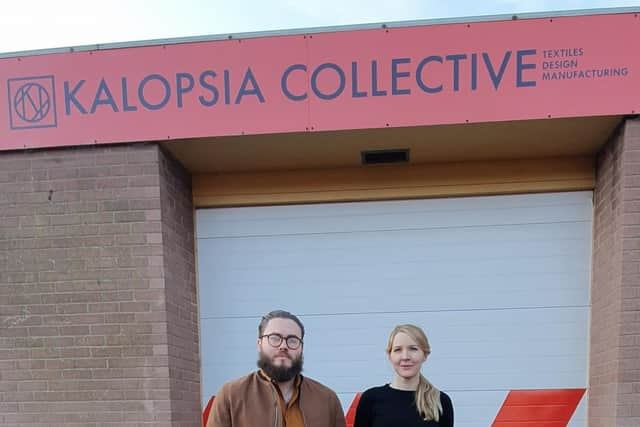Brexit visa policy could 'force one in five Scottish firms to close’


The Federation of Small Businesses (FSB) has highlighted the hiring issues facing Scottish firms after 45 per cent of small companies reported recruitment challenges over the past year, compared with a UK average of 38 per cent.
FSB research highlights that 19 per cent of small businesses in Scotland could be forced to close or radically change their business models if they struggle to recruit EU workers.
Advertisement
Hide AdAdvertisement
Hide AdIt also found that 40 per cent of Scottish small employers have at least one EU worker on the books.


This comes in the wake of an immigration crackdown by the UK government, with Home Secretary Priti Patel pledging to close the door on “low-skilled” immigrants from the EU.
The new policy, which has received a backlash from UK businesses, would end free movement and introduce a points-based system to allow visas to migrants with academic qualifications or a job offer in a “high-skilled” profession.
'Critical' to get new system right
The FSB has suggested a four-point plan to mitigate the effects of the plan and support recruitment in Scottish firms. This includes giving potential migrants extra points if they want to work north of the Border.
FSB Scotland policy chair Andrew McRae said: “There are now more than 100,000 EU workers in employment in cities, towns and villages across the country. The imminent introduction of a new way of hiring workers from outside the UK is concerning.
“Against a backdrop of weak economic growth, a buoyant labour market and an ageing population, it’s critical that we get the post-Brexit immigration system right. The tight timescales mean there’s no margin for error.
“Getting it wrong risks business closures.”
Swedish-born Nina Falk, who runs Edinburgh textile manufacturer Kalopsia Collective, said: “We found Edinburgh, and Scotland in general, to be a very positive and friendly environment to set up a business – with a good community of small and medium businesses and a good support network.
"The UK government’s new innovator visa will cut off so many amazing businesses and people, especially those from niche sectors or young people.”
Advertisement
Hide AdAdvertisement
Hide AdRamona Obafemi, born in Romania, runs the Highlander Café in Aberdeen. She said: “I own a cafe based on Aberdeen beach with a mixture of European nationals (four) and UK nationals (two) working in our team. It is very important for my business to be able to continue to hire the best person for the job – and more often than not that’s applicants from foreign backgrounds.”
McRae added that the FSB’s suggestions could “take the sting out” of the new immigration set-up. He said: “We’re concerned that the proposed immigration rules will make hiring more difficult and expensive. But this need not be the case. It should not be beyond us to make the new system accommodate the distinct economic and demographic needs of Scotland.”
